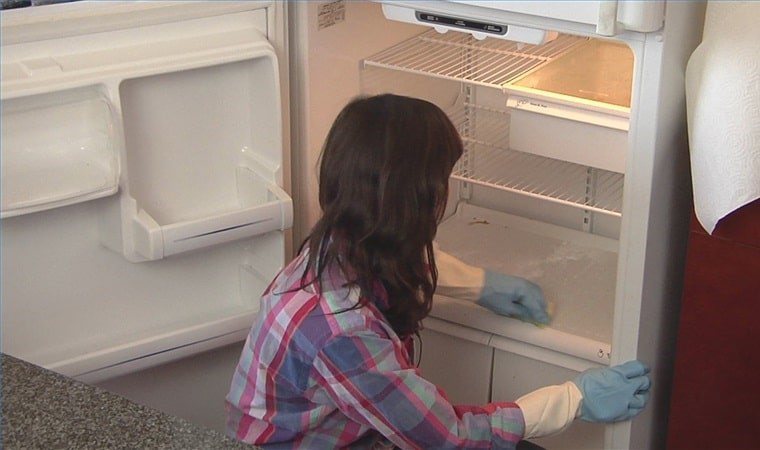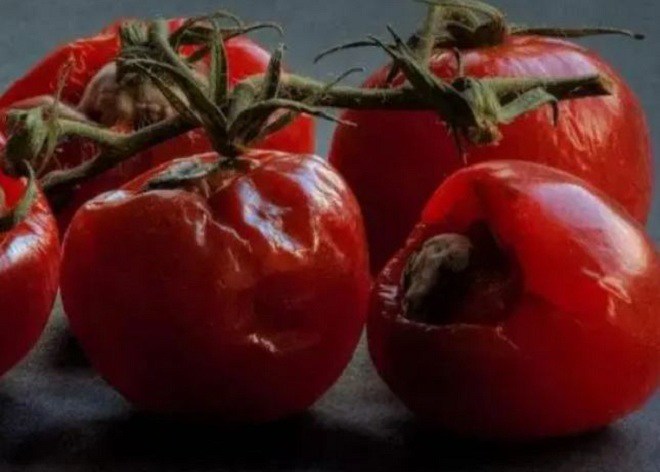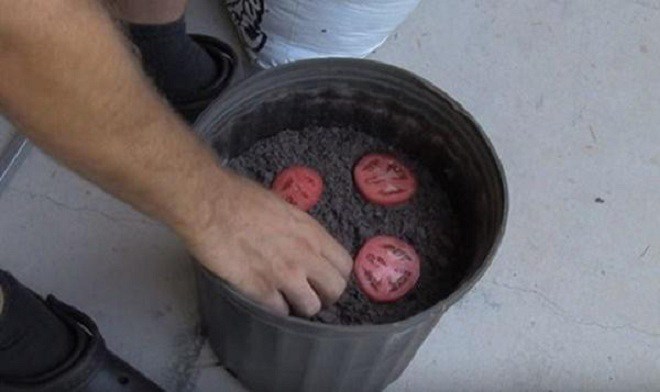Many people’s first reaction upon discovering rotten tomatoes is to throw them away. But in reality, rotten tomatoes aren’t as useless as you might think. If used correctly, they can actually be quite surprising. So, what are the benefits of rotten tomatoes?

1. Deodorize the Fridge
Nowadays, almost every household has a refrigerator. But after a while, the fridge will develop a peculiar smell due to the combination of odors from various foods.
There are many ways to get rid of fridge odors, and one of them is to use rotten tomatoes if you happen to have some at home. Specifically, cut off the rotten parts of the tomato, squeeze the remaining part to extract the juice, dip a clean cloth into the tomato juice, and then wipe down the fridge.
After that, just wipe the fridge again with a clean cloth. This method not only removes stubborn stains from the fridge but also effectively eliminates odors.

2. Clean Metal Items
While acetic acid in rotten tomatoes is harmful to the human body, it is very friendly to metal items. It will react with metals, so you can use rotten tomatoes to clean metal objects such as knives, forks, faucets in the bathroom, and sinks.
The process is simple: just rub the rotten tomato on the item you want to clean, let it sit for about 10 minutes, then wipe it off with a paper towel and rinse with water. This will leave your metal items sparkling clean and free of stubborn stains and rust.

3. Natural Fertilizer
Just like other rotten fruits or fruit peels, rotten tomatoes can be used as natural fertilizer. Tomatoes have high nutritional value, and even after rotting, these nutrients remain largely intact. Once they decompose, they become a great source of nutrition for plants.
To make fertilizer from tomatoes, first, cut the tomatoes into small pieces and put them in a box. Add some rice washing water and soak them together. Cover the box tightly with plastic wrap and let it sit for about a month to ferment. After fermentation, you can dilute this mixture with water and use it to water your plants. They will thrive and bloom beautifully.

4. Use for Gardening
While it’s true that rotten tomatoes will emit an unpleasant odor if left indoors, that doesn’t mean they are useless. You can find a pair of disposable gloves, cut the tomato in half, and you’ll see the juicy seeds inside. You can use these seeds to grow your own tomato plants, and before you know it, you’ll have fresh tomatoes to enjoy.
To grow tomatoes, cut tomato slices and place them in a pot or plastic tray filled with soil. Cover with a small amount of soil and water. After about 7-14 days, the seedlings will sprout. At this point, move the seedlings to a location with ample sunlight. When the seedlings reach a height of 10-20 cm, transplant them to a prepared outdoor location.
About 15-20 days after transplanting, set up stakes or trellises for the plants. After another 10-15 days, apply organic fertilizer and worm castings to the tomato plants. When the fruits turn bright red, they are ready to be harvested.
The Citrus Peel “Treasure”: A Natural House-Cleaning Wonder You May Be Wasting.
Introducing the transformative power of upcycling! What may seem like mere trash to some is actually a treasure trove of potential for those in the know. With a creative eye and a bit of ingenuity, these seemingly discarded items can be transformed into powerful tools for cleaning and maintaining your home. Uncover the hidden potential and embrace a more sustainable approach to housekeeping.




































